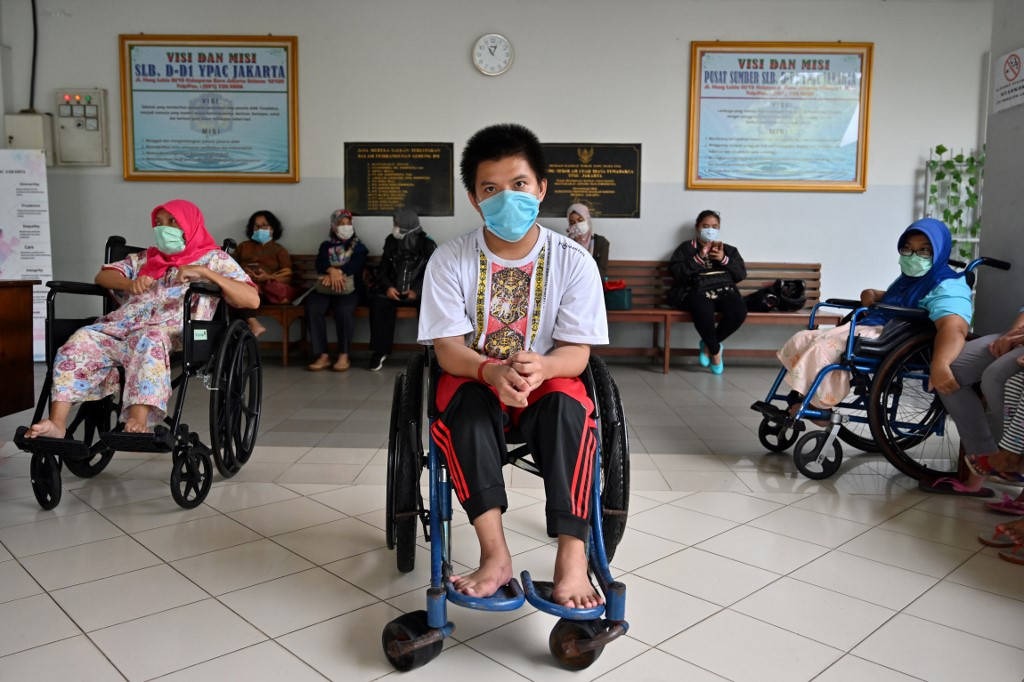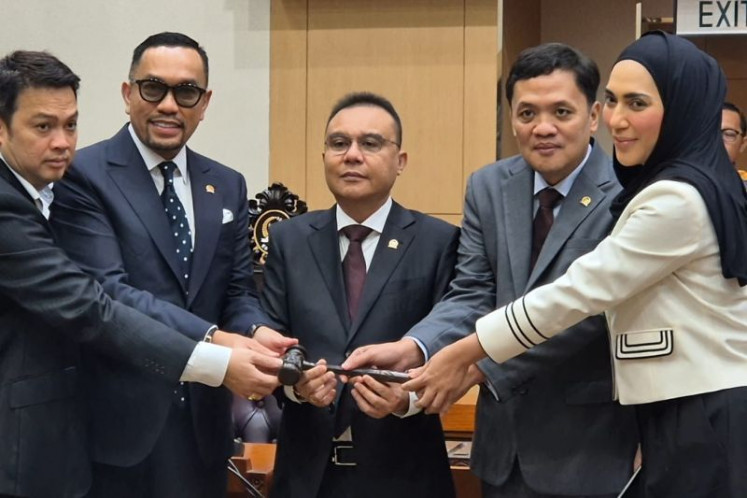Popular Reads
Top Results
Can't find what you're looking for?
View all search resultsPopular Reads
Top Results
Can't find what you're looking for?
View all search resultsNew disability commission stumbles in response to minister's gaffe
What was supposed to open a chapter toward better disability equality in the country has been marred by the lackluster response of the newly inaugurated government watchdog.
Change text size
Gift Premium Articles
to Anyone
W
ith the establishment of the National Commission on Disability (Komnas Disabilitas), disabled persons now have an outlet to channel their hopes for better equality and welfare, even as a gaffe by a Cabinet minister during a related event showed that the country has a long way to go in guaranteeing the rights of persons with disabilities.
On Dec. 1, two days before the International Day of Disabled Persons, President Joko “Jokowi” Widodo installed seven new members of the new commission, most of whom were disabled persons.
It is the latest move by the Jokowi administration to put civil rights front and center in the government’s campaign to uphold and protect human rights, a politically sensitive issue in which the government has a poor track record.
At the inauguration, special staffer Angkie Yudistia from the Executive Office of the President said that establishing the commission was proof that the state was committed to involving disabled persons in the national development agenda.
“With the formation of the commission, our hope is that it will be a positive step toward equality and creating an inclusive Indonesia that is friendly toward disabled people,” said Angkie, who has a hearing impairment.
Muji Kusnanto, who heads a disability community in Yogyakarta, expressed hope that the new commission would tackle the long-standing issue of disability discrimination in the workplace.
Muji, who has difficulty walking as a result of scoliosis and polio, said he had often been rejected for a job even before he had met his potential employers.



















